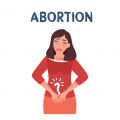How Restrictive Abortion Laws Impact Women's Financial Security and Economic Independence

In recent years, the economic consequences of restrictive abortion laws have become an increasingly relevant topic. Laws limiting abortion access not only affect women's physical and mental health but also have a direct impact on their financial security, career growth, and economic independence. By limiting reproductive choices, these laws contribute to a range of economic challenges for women, including constrained income potential and increased poverty risks.
Economic Costs and Career Impact
Restricting access to abortion often means that women are unable to make decisions about their reproductive health that align with their personal or career goals. Unplanned pregnancies can disrupt a woman’s career, delaying educational opportunities, affecting job performance, and reducing income potential. For those who must balance a pregnancy with work, child-rearing duties may lead to missed opportunities for promotions or skill development, especially if workplace policies do not support parental leave.
Studies have shown that women denied abortions are less likely to be employed full-time and more likely to fall below the poverty line than those who have access to abortion services. In turn, these financial setbacks not only impact women but also their families and communities, limiting economic contributions across broader demographics.

Financial Security and Economic Independence
When women are unable to access reproductive healthcare, they are often forced into a cycle of economic instability. Abortion restrictions can make it challenging for women to maintain economic independence, leading many to rely on social services or family support. These economic limitations are particularly severe for low-income women and those from marginalized communities who may already face financial challenges.
Moreover, limited access to abortion can lead women to make significant, long-term financial sacrifices to support their families. This, in turn, restricts their ability to invest in their education or career, potentially limiting lifetime earnings. With constrained financial resources, many women face limited choices, pushing them to consider options like buy online Abortion Pill or order abortion pills online to exercise autonomy over their reproductive health.
Broader Economic Consequences for Society
The financial impact of restricting abortion extends beyond individual women; it affects the economy as a whole. When a significant portion of the workforce faces barriers to economic stability, it can hinder productivity and reduce overall economic growth. Furthermore, when women are unable to achieve economic independence, they are less likely to contribute to consumer spending and savings, both critical to economic growth.
Additionally, states with restrictive abortion laws may experience lower workforce participation rates, potentially making these areas less attractive for businesses that prioritize an equitable and supportive work environment. The broader economic impact, therefore, not only affects women directly but also shapes the economic landscape in ways that discourage growth and opportunity.
Conclusion
Restricting abortion access has clear economic consequences that reach beyond immediate medical considerations. By limiting women’s reproductive choices, these laws compromise financial independence, career advancement, and overall economic growth. For women seeking greater control over their economic and personal lives, accessible reproductive healthcare remains essential. While some may purchase abortion pills online to seek affordable solutions, unrestricted access to reproductive care is essential for sustainable financial well-being.
Other articles and publications:
Articles and publications of other companies:
- +1 (800) 704-2951
- 915 Ocello Street
- abortionpillrx247.com/product/abortion-kit





